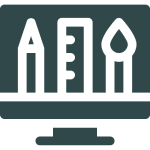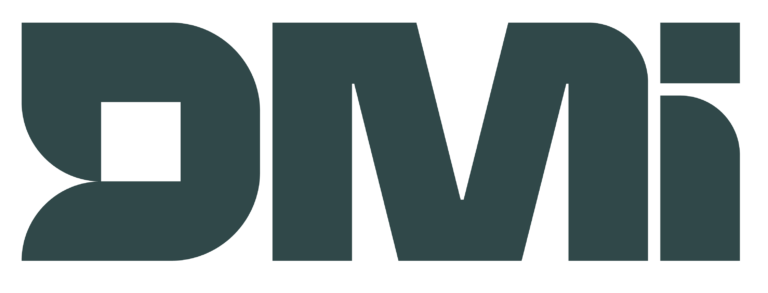A: Website design is the process of creating the visual appearance and layout of a website. This includes elements such as the color scheme, typography, images, and navigation. A good website design should be user-friendly, visually appealing, and reflect the brand’s identity and values.
A: Website development is the process of building the technical infrastructure of a website, including coding, scripting, and database management. A good website development process should ensure the website is responsive, scalable, and secure.
Q: Why is website design and development important for my business?
A: A well-designed and developed website can help your business attract more customers, increase engagement, and drive conversions. A website is often the first point of contact between a business and its customers, so it is important that it represents the brand effectively and provides a good user experience.
Q: What is the difference between website design and website development?
A: Website design refers to the visual and aesthetic aspects of a website, such as layout, color scheme, typography, and graphics. Website development, on the other hand, refers to the technical aspects of building a website, such as coding, programming, and functionality. Both website design and website development are important components of creating a successful website.
Q: What is the difference between custom website design and template-based design?
A: Custom website design involves creating a website from scratch with a unique design, layout, and features that are tailored to the client’s needs and goals. Template-based design, on the other hand, involves using pre-designed templates and themes to create a website quickly and affordably. While custom website design offers more flexibility and creativity, template-based design is often faster and more cost-effective.
A: A good website design should include clear navigation, easy-to-read content, a visually appealing layout, and a consistent color scheme and typography. It should also be optimized for mobile devices and have a fast loading speed.
A: A good website development process should include a thorough planning stage, clear coding standards, a focus on website speed and performance, and ongoing maintenance and updates. It should also include strategies for search engine optimization (SEO) and website security.
A: Responsive design is a website design approach that ensures a website can be viewed and used on any device, including desktops, laptops, tablets, and mobile phones. This means the website’s layout and content will adapt and adjust to fit the screen size and resolution of the device being used.
A: User experience (UX) design is the process of designing a website with the user in mind. This includes creating a website that is easy to use, intuitive and meets the needs and expectations of the target audience. A good UX design should focus on elements such as navigation, accessibility, and usability.
Q: What is search engine optimization (SEO), and how does it relate to website design and development?
A: Search engine optimization (SEO) is the practice of optimizing a website to rank higher in search engine results pages (SERPs) for specific keywords or phrases. SEO includes elements such as website speed, mobile responsiveness, and content optimization. A good website design and development process should include strategies for SEO to ensure the website is visible to potential customers and meets search engine algorithms.
A: Website security is crucial for protecting user data and maintaining the trust of customers. A website that is not secure can be vulnerable to hacking, malware, and other cyber threats, leading to data breaches and other security incidents. Implementing website security measures such as SSL certificates, firewalls, and regular security audits can help protect a website and its users from these threats.
Q: How important is website speed for user experience and search engine rankings?
A: Website speed is critical for both user experience and search engine rankings. A slow-loading website can lead to high bounce rates, decreased engagement, and lower search engine rankings. On the other hand, a fast-loading website can improve user engagement, increase conversions, and boost search engine rankings. It’s essential to optimize website speed through techniques such as optimizing images, compressing files, and minimizing HTTP requests.
A: When designing a website, businesses should consider factors such as the target audience, the business’s goals and objectives, the website’s functionality and user experience, search engine optimization (SEO), and brand consistency. It is also important to ensure that the website is responsive, meaning it can adapt to different screen sizes and devices.
Q: How long does it take to design and develop a website?
A: The time it takes to design and develop a website can vary depending on factors such as the complexity of the project, the number of pages and features required, and the availability of content and resources. A simple website with a few pages can be designed and developed in a few weeks, while a more complex website with custom features may take months. It’s important to schedule a call with us to discuss your project so that we can provide you with a timeline of work and keep you informed throughout the process.
Q: How much does website design and development cost?
A: The cost of website design and development can vary depending on the scope of the project and the features required. A simple website with a few pages can cost a few hundred dollars, while a more complex website with custom features can cost several thousand dollars. It’s important to request a proposal from us so that we can provide you with a clear breakdown of costs and help you choose the right features for your budget.
Q: What is website maintenance, and why is it important?
A: Website maintenance involves regularly updating, monitoring, and optimizing a website to ensure it runs smoothly, stays secure, and performs well. Website maintenance is important because it helps prevent downtime, improves website performance, and ensures that the website remains up-to-date and relevant to the audience. At DMi AGENCY, we provide ongoing website maintenance services to ensure that your website continues to meet your business needs and goals.










